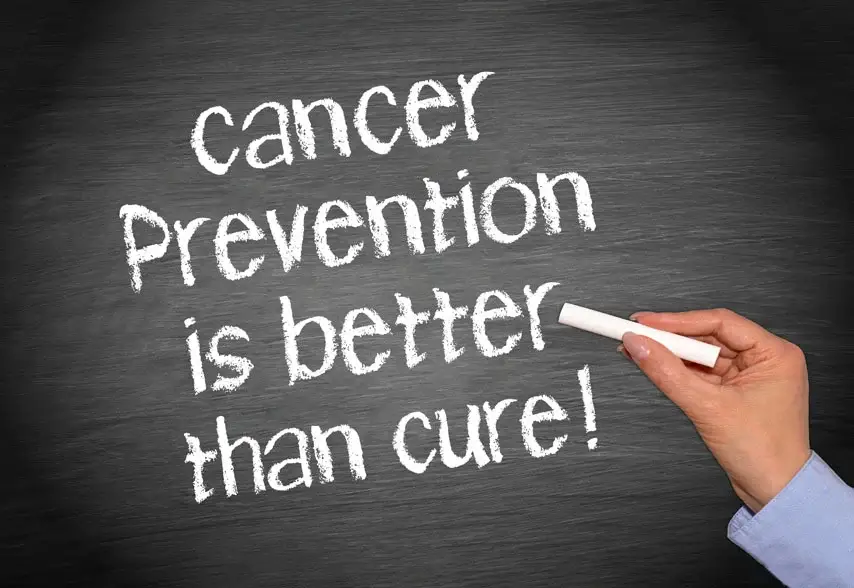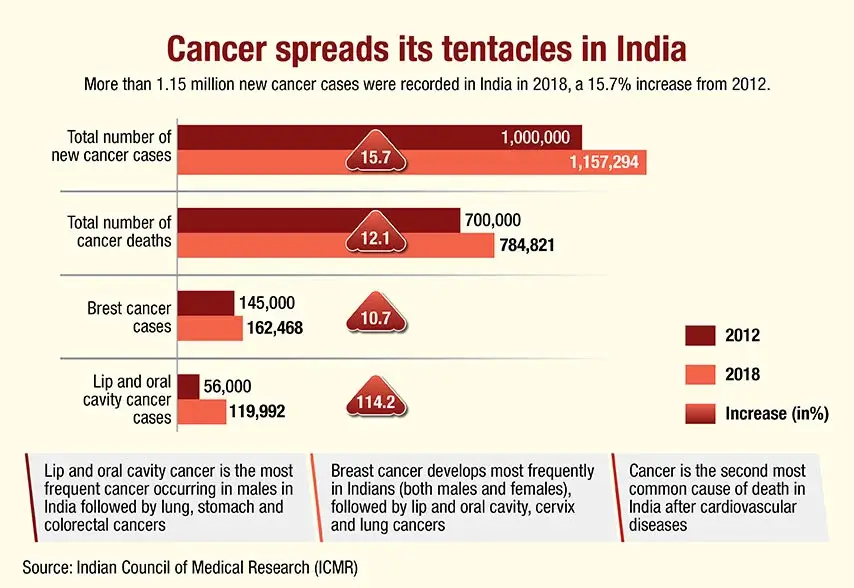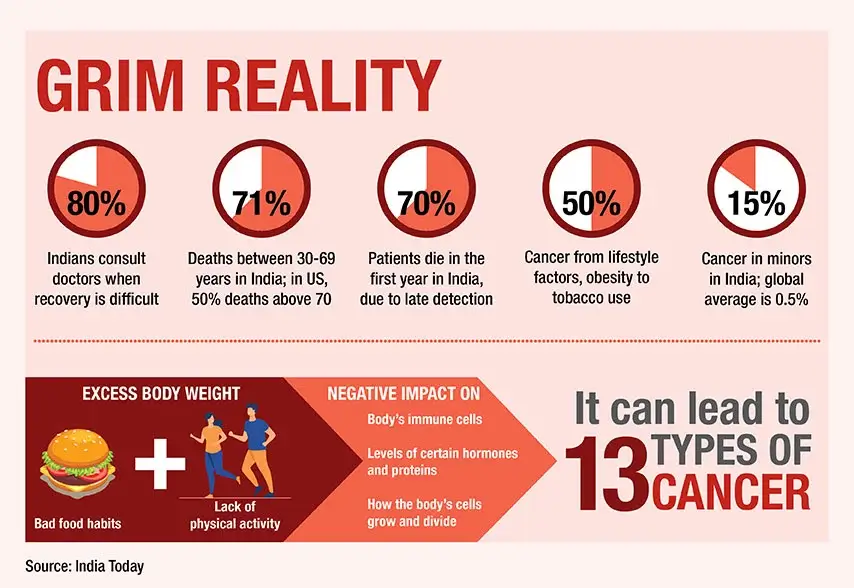
Medical Definition of Cancer
“A term for diseases in which abnormal cells divide without control and can invade nearby tissues. Cancer cells can also spread to other parts of the body through the blood and lymph systems.”
- The National Cancer Institute’s dictionary of cancer terms.
Source: National Cancer Institute
Simply put, new cells keep growing in human bodies to replace the old cells that die. This happens throughout the body – externally as well as internally. Sometimes, the new cells grow too fast and happen to grow in places where the old cells haven’t died yet, which leads to cancer.
Cancer is not one disease
One day at work, Madhu overheard a conversation between her co-workers, who were talking about her colleague, Anuj. Anuj had recently been diagnosed with pancreatic cancer, and ever since, had been undergoing treatment with the help of his cancer insurance. Later that day, on her way back home, Madhu got to thinking and realised that a lot of people around her are being diagnosed with cancer, and in spite of that, she doesn’t know much about the disease. When she tried to learn more about it, the first thing she realised was that cancer isn’t just one disease – it’s a term used to refer to a group of diseases.
As the medical definition suggests, cancer is not one disease – it is a term for diseases that share a common trait. All these diseases have certain effects that vary from disease to disease. Even breast cancer isn’t just one type of cancer – there are a few different types of breast cancer that exist, each with different characteristics, effects, and treatments.
Why don’t we have a cure yet?
By its very nature (not being one disease, but being a lot of different diseases), it’s very hard to find a way to combat it. Cancer is currently being tackled one disease at a time, and our understanding of how it works is evolving every day. Strides in healthcare and innovation are bringing us closer to the possibility of finding cures for all these different complex diseases.
Cancer trends in India

Source: LiveMint
A study titled History of the Growing Burden of Cancer in India: From Antiquity to the 21st Century published in the Journal of Global Oncology predicted that as India continues to age, the number of cancer cases will keep increasing, doubling every twenty years. The average age in India is currently around 29 years, and as and when more Indians grow older, their risk of developing one or more types of cancer will increase.
How to protect oneself against cancer
The Harvard Medical School recently made a few recommendations that can help prevent cancer. They are:
- 1. Avoiding tobacco: Tobacco has been linked to multiple kinds of cancer. Smoking or inhaling second hand smoke can be dangerous and put one at risk.
- 2. Eating properly: Refraining from eating saturated fat, red meat, and excessive amounts of processed meat can put one at risk. Consuming fruits, vegetables and whole grains is recommended.
- 3. Exercising regularly: Research has linked regular exercise to a reduced risk of certain types of cancer.
- 4. Staying lean: Excessive fat puts one at risk of certain forms of cancer. Slimming down will help reduce the risk of the same.
- 5. Reducing alcohol consumption: Excessive consumption of alcohol increases the risk of certain types of cancer, so reducing consumption ought to reduce the risk.
- 6. Avoiding radiation: Exposure to radiation has been known to cause cancer. Getting imaging studies done only when necessary and protecting oneself from harmful UV rays are some of the ways one can avoid radiation.
- 7. Avoiding exposure to toxins: Certain materials like asbestos fibres and benzene are carcinogens, meaning that they promote the formation of cancer. Avoiding exposure to such substances ought to reduce one's risk of being affected by cancer.
- 8. Avoiding infections: Certain infections such as hepatitis viruses, HIV and herpes (HPV) contribute to cancer, so precautions taken against these double up as precautions taken against cancer.
- 9. Getting quality sleep: Poor sleep is associated with weight gain, which is linked to cancer. So, getting quality sleep can contribute to helping reduce the risk of cancer.
- 10. Getting a sufficient amount of vitamin D: Certain evidence suggests that vitamin D may reduce the risk of a few types of cancer.
Apart from all the steps mentioned above, on the off-chance that you do get cancer, it is very important to stay tuned in to body. Recognising the warning signs of cancer is step one towards recovery.
Cancer insurance

Source: India Today
As incidences of cancer continue to grow, it’s crucial to purchase cancer insurance. Cancer insurance is a type of insurance that helps individuals by providing them with financial assistance in the unfortunate event of them being affected by cancer. While it may not help with the emotional burden of a disease like cancer, the fact remains that cancer also imposes a huge financial burden on individuals, and cancer insurance offers a way to mitigate the implications.


Comments